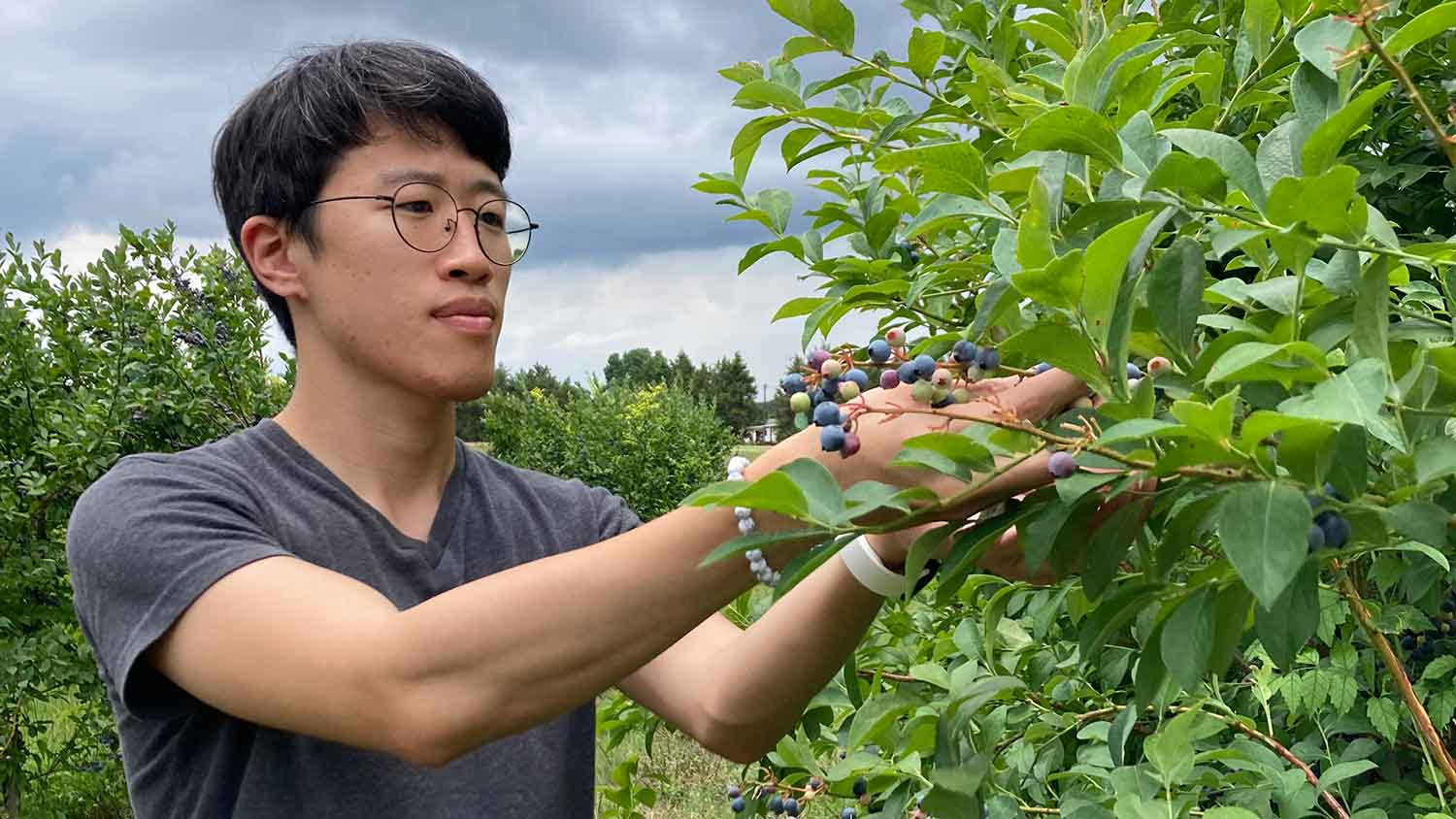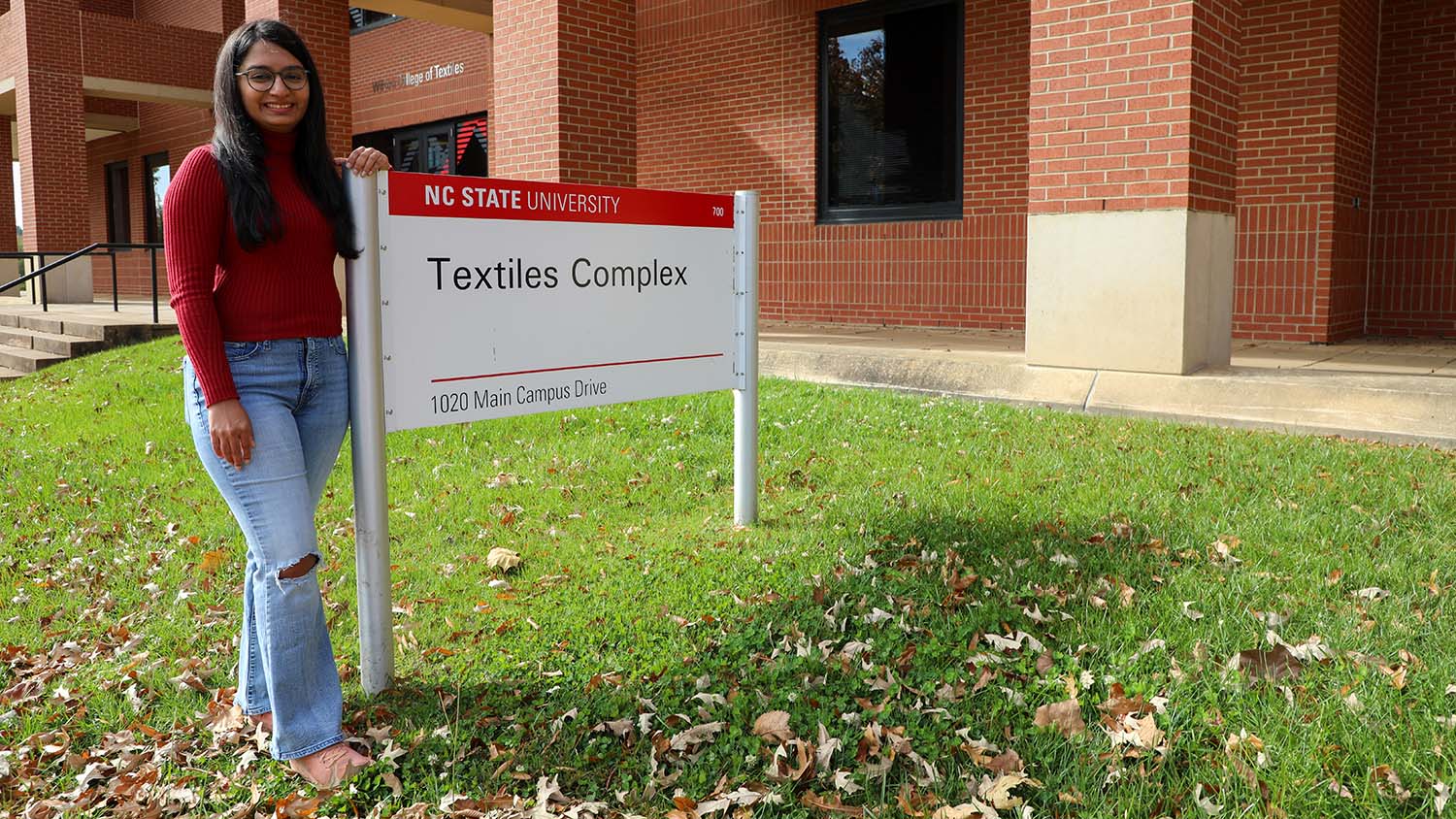Growing Blueberry Research
Postdoctoral researcher Heeduk Oh's cutting-edge work with blueberries has earned him the Keller Award for doctoral dissertation research for the College of Agriculture and Life Sciences.

Growing up near a blueberry farm in New Zealand, Heeduk Oh enjoyed picking and eating fresh fruit every year. After moving to South Korea, Oh discovered blueberries were not grown in his native country and missed their novelty. The experience left a lifelong impression and formed a dream to become a horticultural scientist to bring his childhood experience home.
“I had the opportunity to work with blueberries during my master’s program at Seoul National University and again during my Ph.D. research at NC State University,” Oh says.
Oh leveraged his research experiences at NC State’s Plants for Human Health Institute (PHHI) to deepen his understanding of applied postharvest physiology research with genetic and genomic analyses aimed at improving blueberry fruit quality traits, such as taste, texture, size and shelf-life.
Advised by horticulture professors Penelope Perkins-Veazie and Massimo Iorizzo, and as part of the Vaccinium Coordinated Agricultural Project (VacCAP), Oh conducted research to understand fruit characteristics affecting postharvest quality, elucidate the genetics of such characteristics, and identify specific traits that could increase consumer purchases. Oh’s work has led to the development of prediction models for storage performance, providing novel approaches for effective selection of shelf-life quality traits. He also successfully integrated multiple instrumental measurements to predict sensory texture attributes, establishing a clear link between objective mechanical properties and consumer perception.
In recognition of his research, Oh, who earned his doctorate in horticultural science in 2024, is the 2025 winner of the Kenneth R. Keller Award, a $2,500 prize for excellence in doctoral dissertation research within the College of Agriculture and Life Sciences. The award’s namesake is a late CALS faculty member, recognized for his work in the university and agricultural development.
“It is a huge honor and comes at a really meaningful time in my career,” Oh says. “It gives me a big boost in confidence and motivation, and it reinforces that the work I’m doing matters. The recognition validates the research we’ve been doing and encourages me to keep pushing forward.”
Oh’s research has identified crucial genomic regions (quantitative trait loci or QTLs) and candidate genes linked to important fruit characteristics — another significant achievement. This knowledge will be crucial for developing marker-assisted selection strategies in blueberry breeding programs.
“Working at NC State has helped me grow a lot, both technically and professionally,” Oh says. “I’ve been able to use advanced genomic and statistical tools to tackle real-world problems in blueberry breeding. Being part of a collaborative and interdisciplinary research project has helped me build strong connections with breeders, computational biologists and industry partners. It has confirmed my goal of working at the intersection of research and practical plant breeding.
“Additionally, I was also part of the Foundation for Food and Agriculture Research (FFAR) Fellows program, which was a game-changer in terms of professional development,” he says. “It gave me the chance to explore different career paths, some I hadn’t even considered before. It helped me think more broadly about what’s next for me and what kind of impact I want to make.”
Now a postdoctoral researcher with PHHI, Oh is expanding his research on investigating the underlying genetics of important fruit quality traits in blueberries through quantitative genetics and genomics. “My current research focuses on fine-mapping the genomic regions associated with key traits using genome-wide association studies (GWAS) and QTL mapping. We are also exploring genomic selection as a way to significantly accelerate breeding efforts, especially for highly quantitative traits.”
Buoyed by the recognition of the Keller Award, Oh is moving ahead with purpose. “More than anything, this kind of recognition helps me stay focused and excited about the future. It’s a reminder that I’m on the right path and that I have a community behind me that values meaningful research. This award supports my long-term goal of becoming a leader in plant breeding and agriculture.”
This post was originally published in College of Agriculture and Life Sciences News.
- Categories:


